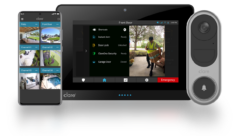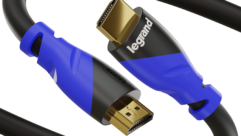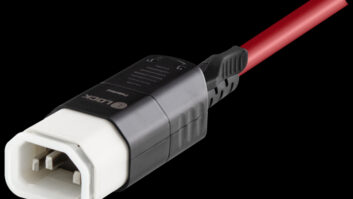

Q&A With Jim Gist, Control4
Control4 started out selling wireless control solutions into the residential market, then it won the right to supply systems to MGM’s massive CityCenter. Now it’s bringing its tech to InfoComm.
JIM GIST
is vice president of commercial development at automation and entertainment systems manufacturer Control4. The company started out selling low-cost, wireless control solutions into the residential market, then it won the right to supply systems to MGM Mirage’s massive CityCenter complex in Las Vegas. This year, for the first time, the company is bringing its technology to InfoComm. Pro AV asked for a preview.
Pro AV: This is Control4’s first year at InfoComm. Why now?
GIST: The reason we think now is the right time is that we’ve accidentally been working in the commercial space via hospitality for the past several years. Today we have several large-scale installations deployed. CityCenter is the world’s largest IP and ZigBee control system. But what we were finding as we went into hotels was that we were doing the rooms but not the public spaces, so we wanted to look at how we could better equip our systems and software to do more and extend commercial automation to more people.
Pro AV: What do you see in the commercial market that you hope to address with your products?
GIST: The commercial space in general has some of the same problems the residential space had for years. Although automation in the commercial market is much more prevalent, the systems that are available today are still very costly, and that limits who can actually install them. And the [automation systems] that are wireless are not only costly, but they aren’t always truly wireless, which makes retrofit installations less likely.
So we’re trying to bring scalable solutions that are more retrofit-friendly and at a price point that more companies can digest in order to go green, or automate their boardrooms, or just add features to their buildings.
Pro AV: CityCenter obviously was not a retrofit, but do you see more opportunity in the retrofit market?
GIST: Well, the environment we’re all selling in is challenging, as you know, though we’re starting to see a recovery. But last year, regardless of the economy, our business grew on the residential side in part because of retrofits. In the commercial space, there’s just not a lot of new construction going on. There’s some, but not like there was three or four years ago. But there are a lot of existing buildings out there, and we think if we can give them a retrofit solution that’s affordable, we can expand the market for this type of automation system.
Pro AV: What new solutions for the commercial space will you be exhibiting at InfoComm and how are they different than your residential systems?
GIST: We’re rolling out a complete line of commercial hardware, from controllers, to audio products, to extension devices and touchscreens. The products have a different look and feel, model numbers, pricing, and software features. They also utilize our Web Management Console to manage, deploy, and update large-scale buildings.
We’ll also be rolling out a new touchscreen called the Infinity Edge. The in-wall touchscreens that the commercial industry is used to can do a lot and have a pretty good-sized bezels around them. These have no bezels—they’re glass edge to edge. Think of how an infinity edge pool blends right into the wall. And they all have capacitive-touchscreens like your iPhone or iPad. We’re launching the 5- and 7-inch at the show at price points that are about 50 percent less than comparable products.
Pro AV: What makes your commercial controllers different than your residential systems?
GIST: We used our same base architecture and put in faster processors. There are three basic controllers, starting with a large building controller called the CC-1000, which is all about horsepower and storage for digital media. We also have the CC-300, which is a full-rack version of a smaller product in the residential space with a new 400-MHz processor instead of a 200-MHz CPU. Then we have a CC-200, which is a compact controller with the same processor upgrade as the CC-300. All our commercial products come with a three-year warranty.
Control4 CC-1000
But the software will be the big differentiator. We have add-on packs that allow integrators to do things they can’t do on the residential side, such as large-scale installations and setup, control, and monitoring. We’re also making our Control4 DriverWorks software development kit available to commercial dealers so they can do anything they want with interfaces to third-party devices, and they can use the SDK to make custom user interfaces.
Pro AV: The commercial AV market is very familiar with AMX, Crestron, Extron, and others. How does Control4 plan to compete with, or complement, those solutions?
GIST: Those are great companies; there’s no knocking any of them. But we see the market as not fully tapped. There’s a gap between two- and three-story office buildings and the bigger buildings that have automation. A lot of businesses still don’t have scalable, affordable automation systems, especially on the retrofit side. We think there’s a space between the people who aren’t currently doing anything with automation and those who are using today’s commercial systems.
Pro AV: What did Control4 learn from CityCenter?
GIST: We learned we couldn’t approach the commercial market the same way we approach the residential market. If you look just at Aria [Hotel and Casino], which is one building of the five we did, we have more than 150,000 devices there. Just managing software revisions was a feat, so we had to build a very robust, secure tool—the Web Management Console—which our commercial dealers have access to. We’ll continue to add enhancements, such as advanced energy management, that give integrators and dealers the ability to sell more than just hardware. They can sell hardware, software, and ongoing services.










